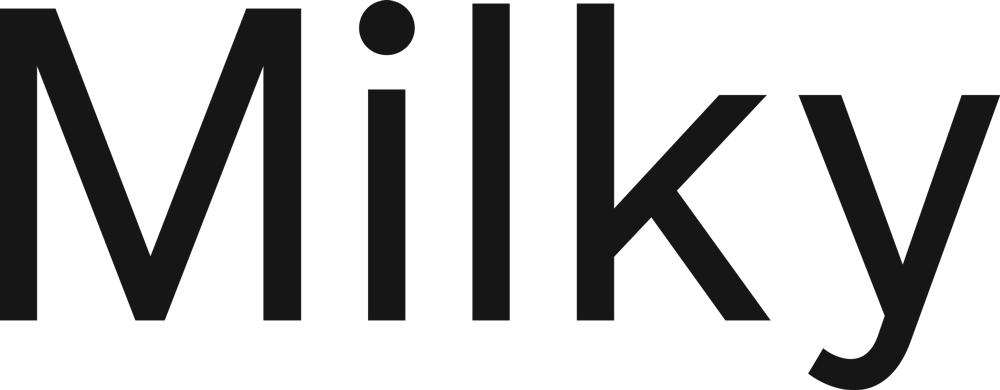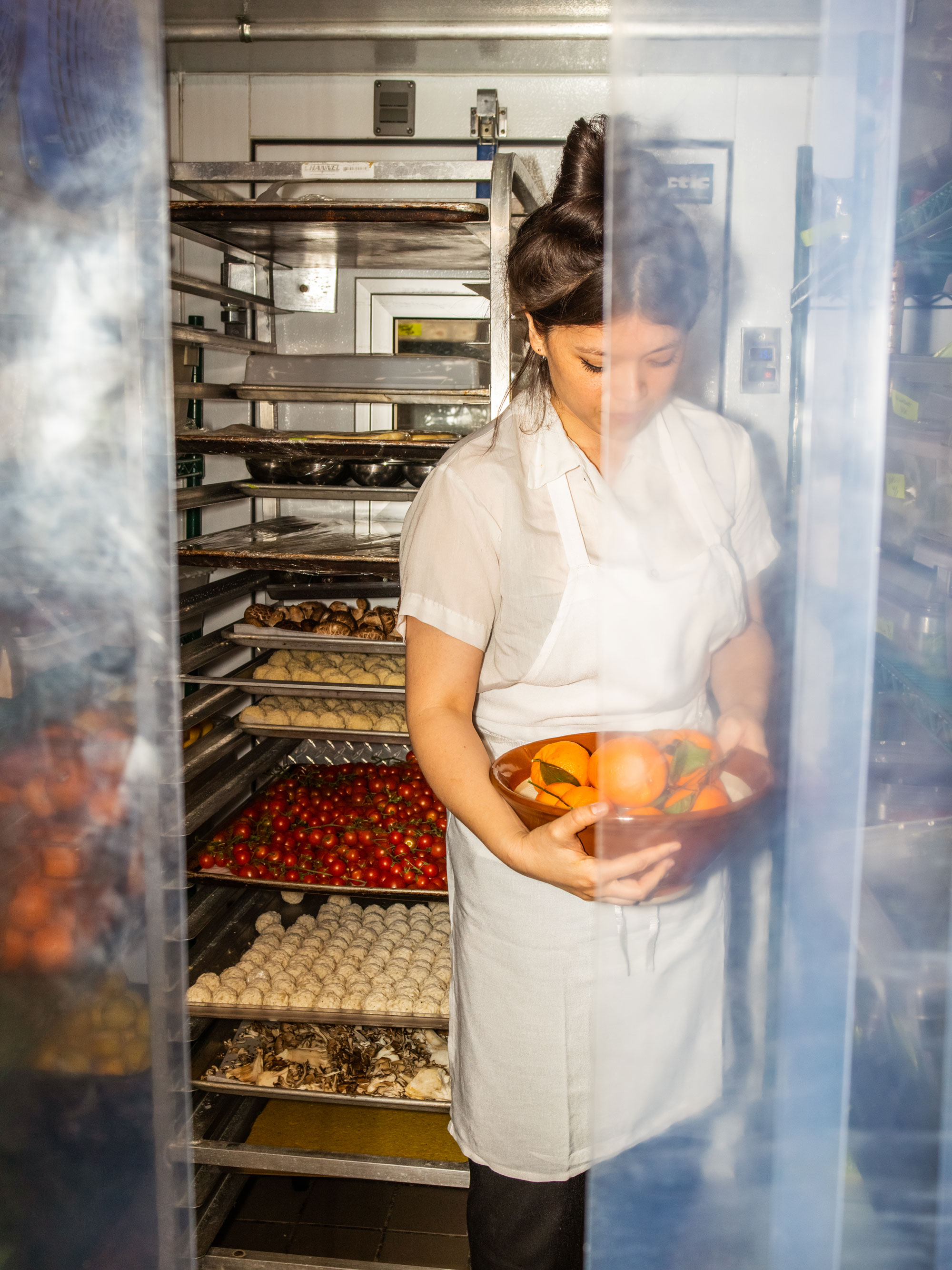WITH Natasha Pickowicz
Meet Natasha Pickowicz, the pastry chef behind New York’s acclaimed Café Altro Paradiso and Flora Bar. A tireless worker, Natasha not only runs multiple pastry programs, she heads up the annual Café Altro Paradiso Bake Sale for Planned Parenthood. Having raised $17,000 last year, the bake sale — which will take place on Sunday, May 19 — is poised to be even bigger in its third year, with nearly twice as many vendors and a new outdoor component.
Read on for Natasha’s very thoughtful and worthwhile advice on identifying your passions, growing your career, and then using your skill set to give back.
Photographed by Kelsey McClellan
I’d love to hear about your journey in pastry. How did you become a pastry chef?
I started baking in my late twenties, after having done so much else. I went to Cornell and studied Scottish literature. I thought I would be a writer or an academic. I got into journalism, and I was really passionate about music, so I was producing and curating concerts — mostly avant-garde music. If I don’t see the thing I want, I’ll try to make it happen. It’s kind of motivated by selfish reasons, but it’s this feeling that it’s only really worth doing if it’s something you feel passion for.
At 21 I was hired by a newspaper as an arts and entertainment editor. I didn’t cook, and had no interest. It couldn’t have been further from my mind. I moved to Montreal with hopes of getting my PhD in ethnomusicology, but I was rejected everywhere. It was devastating. I got a job at a luncheonette that needed a baker. They asked if I had worked in a restaurant and I straight-up lied. I really believe in faking it ‘til you make it. If you seem organized and composed and you’re making it work, no one has to know you’re freaking out on the inside.
I got my first fine dining pastry job at a restaurant called Lawrence. I was about 27, terrified, and so outside of my comfort zone. But every day I would finish my shift so full of adrenaline.
The restaurant closed for two weeks each year, and I wanted to keep learning, so I came to New York to stage at She Wolf Bakery. Their staff suggested I stage in a pastry kitchen too, so they set me up with Ashley Whitmore, who ran the pastry programs at Marlow & Sons and Diner. We really hit it off, and she offered me a job. I was there for about a year as a pastry cook, in my late twenties making minimum wage.
After that, I spent about a year cutting my teeth as the pastry chef at Foragers. I had the chance to meet with Ignacio [Mattos, the chef and owner of Café Altro Paradiso and Flora Bar], who was about to open Altro, and I was like, ‘Um, I can’t work for someone at that level, I’m not qualified.’ Every job I’ve ever taken I’ve always felt like I wasn’t ready. But you do it and you figure it out. You realize you’re never going to feel like you’re ready until you’re in the moment and you see that you can. When you feel like you’re too good for something, or that you know all the angles — I think that’s what’s going to hold you back from growing.
How would you describe your work with Altro versus Flora Bar?
I think that Altro is the company low-key favorite. This is the food people crave in a sort of visceral way. The food is more effortless looking, a little looser, seemingly rustic. I think it’s really comforting, and that translates to the desserts. It might just be a slice of something on a plate, but a lot of work went into making sure that slice was perfectly dialed in. The desserts at Flora Bar are being built to order; it’s more about all of the elements coming together à la minute on the plate.
When it came to joining the team at Matter House, a big draw for me was Flora Bar not just being a restaurant, but an all-day cafe servicing the Met Breuer, which is an institution for contemporary art. It was about the opportunity to play around not just with the fine-dining format and plated desserts, but also baked goods and the pastry case.
That’s a lot of multi-tasking.
I’m constantly trying to address, refine, and negotiate my time. And it’s not just looking after the pastry programs at Altro, Flora Bar, and Flora Coffee — there’s so much else happening all the time besides that, like events, dinners, and things with our friends in media. It forces me to be super organized and hold myself accountable.
How do you typically manage your day?
We use a lot of shared tools. I’m not just responsible for one team at one restaurant; I have multiple teams, there are multiple chefs, and I work closely with Ignacio, and he bops around even more than I do. Things like Slack, texts, email, shared calendars, Dropbox — all of these tools exist to help make sure we have the same information.
I think this is a pastry brain, but I’m rarely thinking about just my day. It’s what we call forecasting: How do I set myself up for the rest of my week going into my month, and really trying to budget and manage my time? It’s not perfect, and something I’ve always struggled with — and I’m a Libra, so I believe in balance — is feeling like the pendulum is swinging too far in one direction and not the other. This is something I’ve had to come to terms with and accept. When I’m sitting in this restaurant or working in that kitchen, this is the only thing that matters. That has been a journey for me.
I’d love to talk about the bake sale for planned parenthood. It’s happening so soon!
I’m at the point where it’s all I can think about! It’s like I’m planning my own wedding but also programming my dream music festival — but replacing bands with chefs and bakers. It really feels personal to me in that way.
And it just keeps getting bigger and bigger.
I didn’t have a lot of experience fundraising, and the first time around it felt like we were writing our own rules. As the bake sale expanded, it just became this event that was like, overstuffed. We want to invite as many great chefs and bakers as possible, but we also want people to be comfortable and to not sell out in 45 minutes. What’s exciting about adding an outdoor component is that we’re able to invite new people. So there are lots of new, exciting additions like Ops Pizza, Frenchette, and La Mercerie.
I also started reaching out to friends who aren’t in New York City — pastry chefs and bakers from places like Sqirl in Los Angeles, Tandem in Portland [Maine], and Zahav in Philadelphia. It’s really incredible for me to see the eagerness and willingness to participate.
I’m also folding in more people that have really strong baking voices but aren’t based in restaurants, like cookbook writers and food stylists. Erin McDowell and Claire Saffitz are coming. Dorie Greenspan has been doing the bake sale. They’re obviously beloved by so many people, but how often can you have something baked by Claire Saffitz?
How did the bake sale come to be?
The first bake sale happened in spring 2017, after the November 2016 presidential election. I was interested in raising money at the ground level, and wondering how we could make a statement that would bring the community and like minds together.
For me it’s not just about raising money; it’s about creating a swell of sentiment. Bringing the neighborhood together and explaining not just what Planned Parenthood does, but what Planned Parenthood in New York City does. That’s a very different thing. It was really important to me that the focus felt local.
What advice would you give to someone else who doesn’t have experience fundraising but wants to apply their own creative niche towards an initiative like this?
I think it comes down to two core concepts. The first is identifying your passions and strengths, and not trying to do something that isn’t you, or that doesn’t speak to or feed you in some way.
The second is finding your like minds and creating a core team. Because you cannot do it alone, and that was really big takeaway for me; letting go of certain things and defining the roles of everyone else around me. Think about your interests and want you want, then create a team that’s going to help realize your vision. I think both of these things have to be in place, and from there you kind of figure it all out.
Also, learn from your failures and mistakes. The first year I wanted to raise as much money as possible and we decided to ask our staff to volunteer their time. Everyone’s heart was in the right place, but how does that actually pan out? People are late, people show up hungover, people flake. So we were like, ‘Okay, let’s set aside a few thousand dollars for hiring staff properly, so that things run smoothly.’ We’re always recalibrating after these hiccups so that we can grow in a sustainable way, and not just grow but have it feel really wild.
Who are the women you look up to?
Well, I just shot an episode with Ina Garten on Barefoot Contessa. I’m inspired by the fact that she wasn’t afraid to make a change in order to get closer to her passions. She was analyzing budgets and working as an aid in the White House. At a certain point she pivoted. She opened the store, she started catering, she started writing books.
She’s kind of no-nonsense, and I think she asks a lot from the people around her, and that she gives everything to what she’s working on in that moment. I’m inspired by her attitude, what she’s achieved, how hard she works, and how much joy she does seem to derive from all these things. I think she’s someone who always wants to keep learning.
And I’m sure everyone says this, but my mother. She’s someone I think is really brave and has shown a lot of courage throughout her life. She grew up in China and immigrated to the United States in the early 80s. She didn’t know English, went to art school, and then had me. I’m inspired by her vision as a visual artist and how she’s made space for herself and her passions.
What kind of woman do you want to be?
I want to be a person who supports others and is always practicing empathy. I want to be someone who can balance their work passions with having a rewarding inner life, which I think can be hard if you work for a restaurant. Living by myself in Greenpoint is probably the key for me right now in terms of having that balance. And I think surrounding myself with people who are kind, funny, generous, and honest is a really important part of my world and my life.
I definitely want to be someone who is able to connect the dots between my passions and my work. I feel very lucky. When you’ve been working a 14-hour day and your deliveries didn’t show up, and customers are complaining, and the kitchen is dirty, it can be very hard to pull yourself out of that stress. But I feel very grateful for the resources I have and the kind people I work with. That’s huge. I’m such a people person, so I want to be someone who shares all of those things with the people around me.










